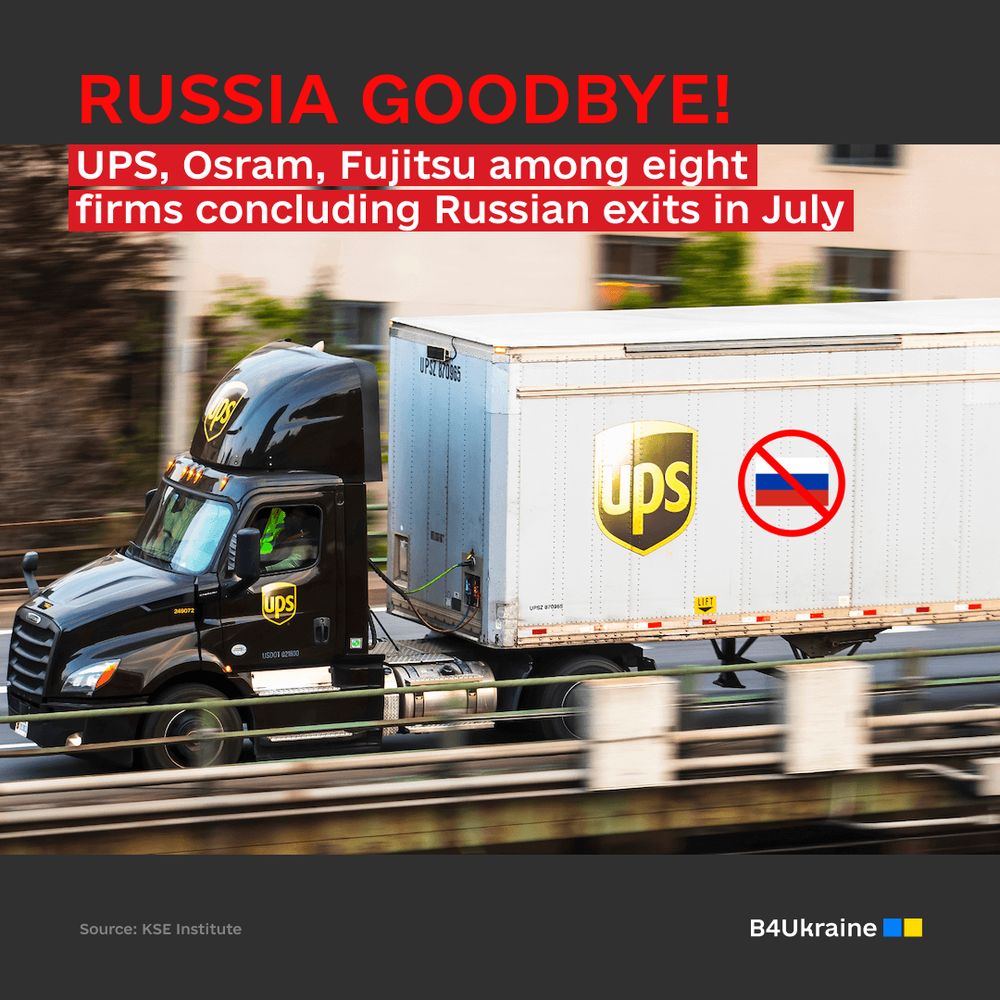
In July 2024, only eight international companies completed the process of withdrawing from the Russian market by selling or liquidating their operations, according to an analysis by the Kyiv School of Economics (KSE).
This brings the number of businesses that have fully left Russia since the full-scale invasion of Ukraine to 418, while more than 2,000 are still operating as usual in Russia, thus contributing to its wartime economy.
The list of the most recent companies leaving Russia includes the French multinational television production and distribution company Banijay Group, the Italian domestic appliance maker Candy, the American multinational shipping and supply chain management company UPS, the Ukrainian software company YouScan, the Japanese electronics manufacturer Fujitsu, the German brake systems manufacturer Knorr-Bremse, the German lighting manufacturer Osram Licht AG, and the Ukrainian confectionery corporation Roshen (whose factory shares have been seized and transferred to Russian state ownership).
According to KSE, multinationals pay an estimated 20 billion annually in corporate taxes to a government led by internationally wanted war criminals. Fast-moving consumer goods (FMCG) firms are the second-highest revenue-generating and tax-paying sector in Russia, after alcohol and tobacco, making a significant contribution to the country’s war economy. Ironically, FMCG firms often pride themselves on their ‘social purpose’ and strong commitment to environmental, social, and governance (ESG) principles.
The FMCG sector includes major brands such as Mondelez International (with an estimated $1.4 billion in revenue in Russia in 2023), PepsiCo ($4.2 billion), Mars, Incorporated ($2.9 billion), Procter & Gamble ($1.8 billion), Nestlé S.A. ($2.8 billion), and Unilever ($700 million). All six firms have been labeled “international sponsors of war” by the Ukrainian government for their significant contribution to Russia’s war economy. These firms argue that they provide ‘essential’ goods to ‘ordinary’ Russians and show concern for the welfare of their Russia-based employees while producing chocolates and biscuits. Ironically, in the meantime, they are required to help the state recruit eligible employees to fight against Ukraine.
A recently issued US Government Business Advisory on Russia clarifies the risks for US companies still operating in the country, including the risk of being complicit in Russia’s growing number of war crimes, which currently stands at 138,475.
The B4Ukraine Coalition calls on all international companies still doing business in Russia to drop their keys and leave the market of the aggressor state. G7 and allied governments should swiftly follow the US’s lead and issue similar guidance to their own companies.